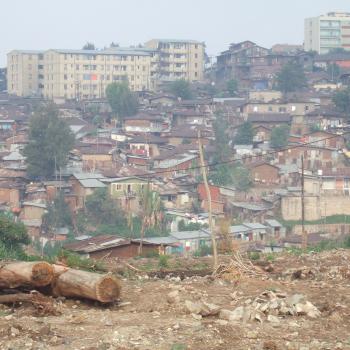
This brief assesses the research findings from a mixed methods study of the experiences of urban relocation in 3 communities Addis Ababa and suggests a set of recommendations.
In Ethiopia the state-led Integrated Housing Development Programme involved the construction of large condominium complexes mainly on the city outskirts . This enabled poor and middle-income households to become homeowners for the first time, something they had previously thought of as unimaginable and referred to as ‘a dream come true’. This study interviewed young people 8 years apart, during which time some had been relocated to new condominiums and some had remained in old neighbourhoods. The findings are reported in a Working Paper available here
This Policy Brief offers the following recommendations:
■ Consider housing subsidies and alternative options for the poorest, given the difficulties very poor households have in paying for the costs of condominiums.
■ Plan relocation to take place during school holidays as far as possible, to prevent the disruption to schooling that occurs when it happens during the school year.
■ Improve services in the new condominium areas beyond housing provision. This includes better
health and education provision, and more leisure and recreation options.
■ Pay greater attention to issues of environmental pollution and safety, including gender-based violence.
This is particularly important in the old neighbourhoods.
■ Promote changes in societal gender attitudes that give girls more agency and decision-making in leisure
activities and spending in the home, in schools and through media and community initiatives

This brief assesses the research findings from a mixed methods study of the experiences of urban relocation in 3 communities Addis Ababa and suggests a set of recommendations.
In Ethiopia the state-led Integrated Housing Development Programme involved the construction of large condominium complexes mainly on the city outskirts . This enabled poor and middle-income households to become homeowners for the first time, something they had previously thought of as unimaginable and referred to as ‘a dream come true’. This study interviewed young people 8 years apart, during which time some had been relocated to new condominiums and some had remained in old neighbourhoods. The findings are reported in a Working Paper available here
This Policy Brief offers the following recommendations:
■ Consider housing subsidies and alternative options for the poorest, given the difficulties very poor households have in paying for the costs of condominiums.
■ Plan relocation to take place during school holidays as far as possible, to prevent the disruption to schooling that occurs when it happens during the school year.
■ Improve services in the new condominium areas beyond housing provision. This includes better
health and education provision, and more leisure and recreation options.
■ Pay greater attention to issues of environmental pollution and safety, including gender-based violence.
This is particularly important in the old neighbourhoods.
■ Promote changes in societal gender attitudes that give girls more agency and decision-making in leisure
activities and spending in the home, in schools and through media and community initiatives

